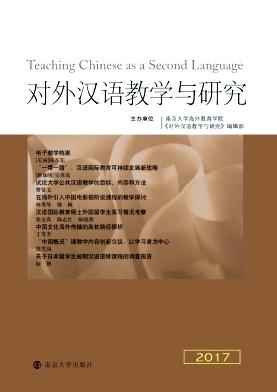Toward Inclusive Translanguaging in Multilingual Classrooms
引用次数: 2
Abstract
As the world moves to a post-COVID stage and movement of goods and people across borders resumes, we need to rethink how we communicate and educate students about communication in a superdiverse world with increased presence of minoritized languages and varieties. The growing evidence of translanguaging practices among plurilingual speakers in multilingual societies and linguistic minority communities across the globe (e.g., Cenoz & Gorter, 2017; Oliver et al., 2020; Seals & Olsen-Reeder, 2020; Straszer et al., 2022) has prompted greater attention to equity and linguistic social justice issues in language education. Pedagogical translanguaging has been put forward as an “all encompassing” (Li, 2018, p. 9) practice to address linguistic inequities and injustices in the classroom. While it is a step forward in countering monolingual ideology and the dominant-language-exclusive policy and sanction, I draw attention to the “selective” nature of much of the current pedagogical translanguaging approach and argue for “inclusive translanguaging” that capitalizes on all of the languages, cultures, and identities of plurilingual speakers who have historically received marginalization, including their non-dominant dialects or mother tongues.多语言课堂中的包容性跨语言教学
随着世界进入后covid阶段,货物和人员的跨境流动恢复,我们需要重新思考如何在一个少数民族语言和品种日益增多的超级多样化世界中进行沟通和教育学生。越来越多的证据表明,全球多语言社会和语言少数群体中的多语使用者之间存在跨语言行为(例如,Cenoz & Gorter, 2017;Oliver等人,2020;seals&olsen - reeder, 2020;Straszer et al., 2022)促使人们更加关注语言教育中的公平和语言社会正义问题。教学翻译被认为是一种“包罗万象”的实践(Li, 2018, p. 9),旨在解决课堂上的语言不平等和不公正问题。虽然这是对抗单语意识形态和独占主导语言的政策和制裁的一步,但我提请注意当前许多教学转语方法的“选择性”性质,并主张“包容性转语”,即利用历史上被边缘化的多语使用者的所有语言、文化和身份,包括他们的非主导方言或母语。
本文章由计算机程序翻译,如有差异,请以英文原文为准。
求助全文
约1分钟内获得全文
求助全文

 求助内容:
求助内容: 应助结果提醒方式:
应助结果提醒方式:


